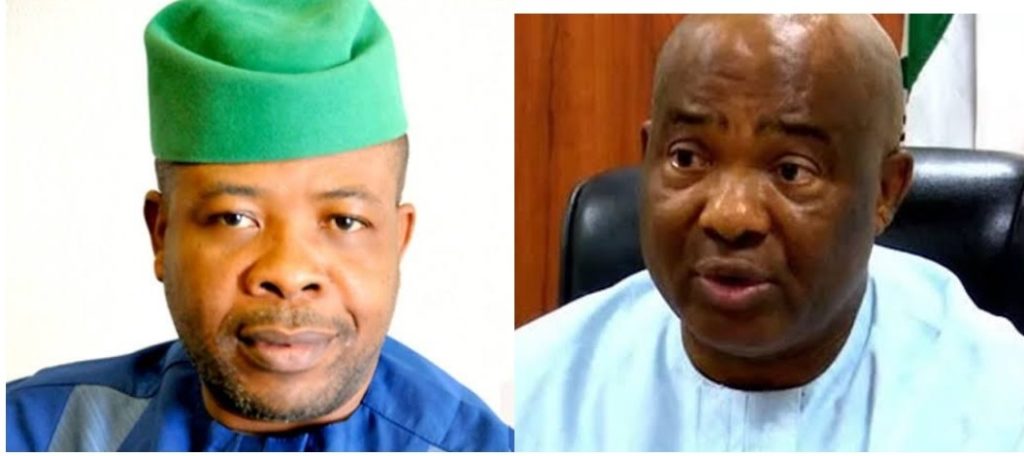The Supreme Court, on Tuesday, adjourned the hearing of the fresh application that sacked the governor of Imo State, Emeka Ihedioha, filed to be restored back to the office, till March 2.
The development came on a day the Chief Justice of Nigeria, CJN, Justice Tanko Muhammad, on Tuesday, assumed the headship of a seven-man panel of Justices of the apex court that will hear the matter.
Aside from the CJN, other justices that participated in the proceedings that led to the January 14 judgement of the apex court that removed Ihedioha and declared Hope Uzodinma of the All Progressive Congress, APC, also made a comeback in the panel.
The other justices in the panel are Kudirat Ekekere-Ekun who delivered the lead judgement that sacked Ihedioha, Justices Sylvester Ngwuta, Umani Abba-Aji, Amiru Sanusi, Kayode Ariwola and Amina Augie.
Meanwhile, when the case was called up on Tuesday, Ihedioha’s legal led by a former Attorney-General of the Federation and Minister of Justice, Chief Kanu Agabi, SAN, applied for a short adjournment to enable them to respond to motions that were served on them.
Neither Uzodinma’s lawyer, Mr Damian Dodo, SAN, nor that of the Independent National Electoral Commission, INEC, opposed the request.
Consequently, the CJN-led panel deferred the hearing of Ihedioha’s request for review of its judgement till March 2.
It will be recalled that the panel had in its verdict that is being challenged by Ihedioha and his party, the Peoples Democratic Party, PDP, declared Uzodinma winner of the Imo governorship contest after it noted that some valid votes that accrued to him in 388 Polling Units were illegally excluded during the computation process.
It held that if the excluded votes were added, Uzodinma who was the appellant would have secured the majority of valid votes cast at the governorship election.
The apex court, therefore, ordered INEC which was the 1st Respondent in the matter to immediately issue a fresh certificate of return to Uzodinma who came fourth in the election.
Dissatisfied with the decision, Ihedioha, in his fresh five grounds of appeal, contended that the Supreme Court lacked the jurisdiction to declare Uzodinma governor in the absence of any proof that votes ascribed to him met the mandatory geographical spread.
